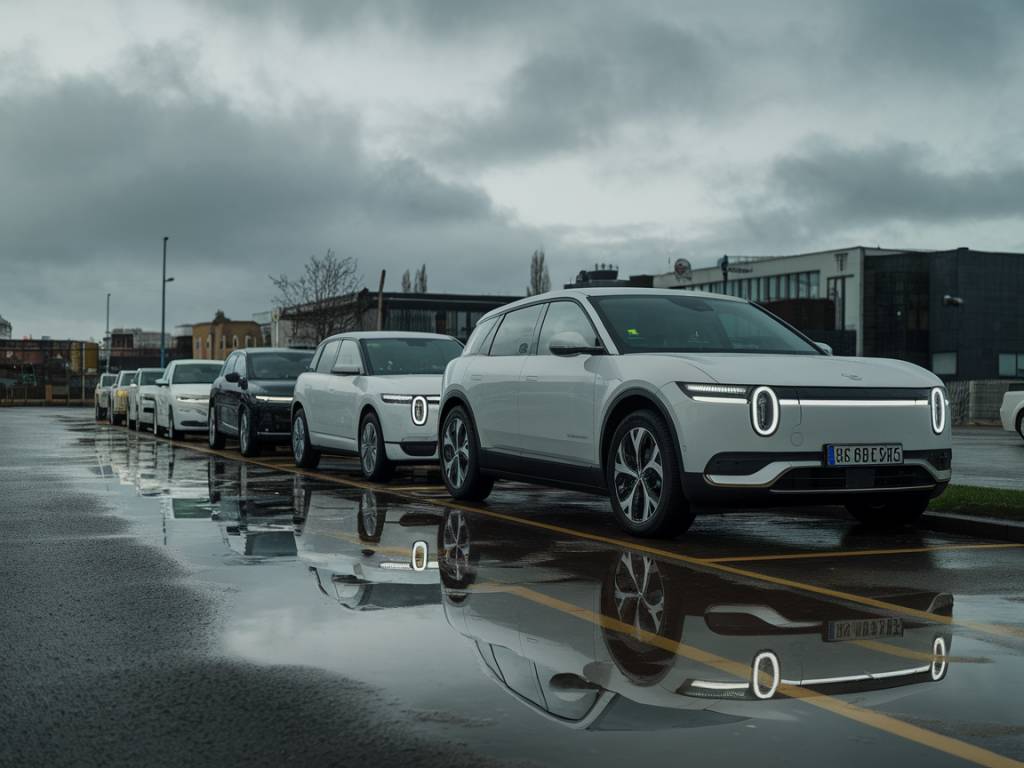
Hey there, fellow eco-warriers! I’m Sean, and buckle up because today we’re diving into a hot topic that’s been buzzing around like a hyperactive bumblebee: electric cars. These high-tech marvels are supposed to save the world one silent drive at a time, but are they really the green dream we all hope for? Spoiler alert: there’s a bit more to the story than you might think.
The Allure of Electric Cars
Let’s start with the obvious—you don’t need to be Einstein to figure out why electric cars have exploded in popularity. No tailpipe emissions, futuristic designs, and the smug satisfaction of knowing you’re doing your bit to save the planet; what’s not to love? But here’s the kicker: scratch the surface, and you might be surprised by what lies beneath.
Battery Blues: More Than Meets the Eye
Believe it or not, the batteries powering these eco-friendly vehicles are an environmental conundrum. Unlike your phone’s lithium battery that’s about the size of a chocolate bar, electric vehicle (EV) batteries are gigantic. Producing one of these behemoths is not exactly a walk in the park—it’s more like a marathon through a smog-filled city.
Production involves mining for rare metals like cobalt, lithium, and nickel. These metals aren’t just lying around waiting to be picked up. They require extensive mining processes that can be highly detrimental to the environment. We’re talking about:
- Deforestation
- Soil and water pollution
- Energy-intensive extraction methods
And don’t get me started on the working conditions in some of these mines. Exploitation and dangerous environments are unfortunately part and parcel of this industry. So while your EV may glide soundlessly down the road, the path to producing its battery is anything but serene.
The Energy Paradox: Clean Power for All?
Alright, let’s cut to the chase. We all know that electric cars need to be charged, and how ‘green’ that process is can vary wildly depending on where you live. If you’re in Norway, congrats! You’re probably charging up with hydropower. But if you’re in a region where coal is still king, your clean car is a bit of an environmental wolf in sheep’s clothing.
While renewable energy sources are expanding, fossil fuels still power a significant chunk of the world’s electric grids. Plug-in your electric car, and you could be indirectly contributing to the same pollution you’re trying to avoid. It’s like ordering a diet soda alongside your double cheeseburger—it looks good on the surface, but the reality is a bit more complex.
The Road Less Traveled: Infrastructure Challenges
If you’ve ever tried to find a charging station in a bustling city or on a long-distance road trip, you know that it can sometimes feel like hunting for a needle in a haystack. The existing charging infrastructure is still playing catch-up with the fast-growing popularity of EVs.
Building more charging stations isn’t a piece of cake, either. It requires significant investment and planning. And let’s not forget that setting up these stations isn’t carbon-neutral. From manufacturing the equipment to transporting and installing it, there are hidden environmental costs at every turn.
The E-Waste Problem: What Happens When Batteries Die?
All good things come to an end, including the life of an EV battery. When that time comes, it’s not like disposing of a dead AA battery from your TV remote. Old EV batteries are a colossal headache to deal with. They need to be either recycled or disposed of, and both options come with their own set of environmental and logistical challenges.
Here’s the crux of the issue:
- Recycling is energy-intensive and expensive
- Not all battery parts can be recycled
- Improper disposal can lead to chemical leaks and soil contamination
In short, we’ve swapped our petrol-based pollution for a looming e-waste crisis that we’ll need to address sooner rather than later.
The Moral of the Story
By now, I imagine some of you might be contemplating whether going electric is genuinely worth it. The answer isn’t straightforward. Don’t get me wrong—EVs are undoubtedly a step in the right direction. They offer some clear environmental benefits compared to traditional internal combustion engine vehicles.
However, it’s essential to recognize that they aren’t the magic bullet some make them out to be. We can’t just slap a ‘green’ label on something and call it a day. Instead, a holistic approach is crucial. From energy production modernization to responsible battery disposal methods, there’s a long road ahead before electric cars can be the pure, squeaky-clean solution we hope for.
So the next time someone tells you that electric cars are the ultimate answer to our planet’s woes, feel free to drop some of these truth bombs. Because, as they say, the devil is in the details. And in this case, those details are as electric as the cars themselves.
Drive safe, stay green, and always question the status quo. Until next time!
Cheers,
Sean


